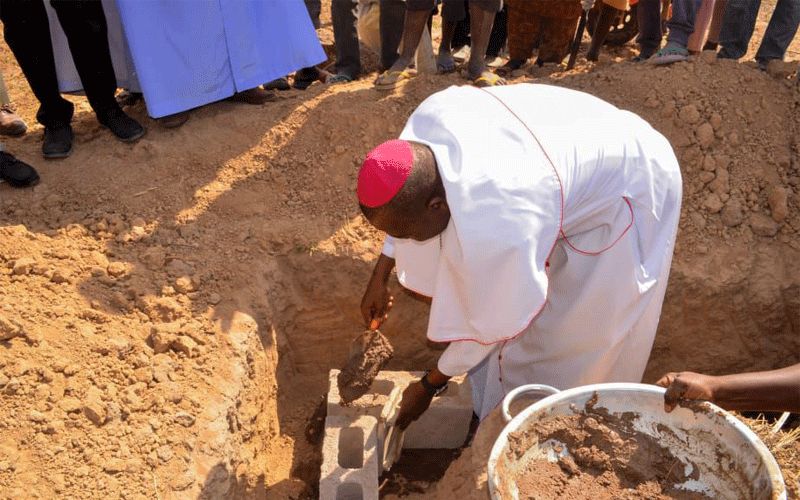Yola, 30 January, 2020 / 3:52 am (ACI Africa).
The Catholic Diocese of Yola in Nigeria has laid the foundation for the building of a residence that will house Internally Displaced Persons (IDPs) fleeing from Boko Haram insurgency in Maiduguri, Northern Nigeria.
According to Fr. Moses Ma’aji, Yola Diocese Communications Director, the facility is one of its kind, the first ever permanent residence for IDPs in the West African country that has been hit hard by terrorist activities for nearly a decade.
“In the past, the country has relocated people because of natural disasters such as flooding. It is the first time we are relocating people because of disasters caused by fellow human beings. And it is definitely the first time we are moving them to permanent places where they can call home, away from the terror in their previous homes” Fr. Ma’aji told ACI Africa in an interview Tuesday, January 28.
The new housing units whose construction began with laying of the foundation at an event graced by Bishop Stephen Dami Mamza of Yola Diocese on Monday, January 27 will host 86 households that have been coming in from Maiduguri, an area specifically hit by the insurgence.
Each household has an average of six members who, according to Fr. Ma’aji, “have terrible memories of where they came from.”








